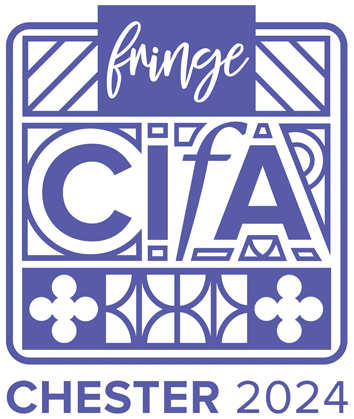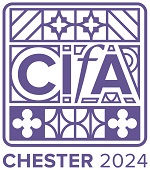Dismantling legacies and collectively building new ones - breaking barriers and bias in archaeology

As part of the annual CIfA 2024 Conference we are hosting a fringe online event on 'Dismantling legacies and collectively building new ones - breaking barriers and bias in archaeology'.
Description
The recent CIfA commissioned Qualitative Inequalities report from Cultural Associates Oxford, funded by Historic England, highlighted the stark reality of the profession of archaeology. If you are disabled, have caring responsibilities, are a member of the Global Majority, come from a working class background, are a woman or nonbinary person - then you face a series of barriers to becoming, remaining, and progressing as an archaeologist. Harassment, bullying, and victimisation still happens at alarming rates. This is a snapshot of an unsustainable profession - one that is not making change fast enough to stem a tide of lost skills, passions, and knowledge, and one that will not adapt fast enough to significant and severe current and future challenges should it continue to lose diverse voices and rich wealth of lived experience.
In such circumstances, constructive words and the energy to work against endemic challenges can feel difficult to find - but this session is designed to do just that. We wish to take the CAO report, alongside the BAJR Archaeologists in Financial Crisis, and CIfA member surveys - and use them to galvanise the profession to take action for change.
The CIfA EDI committee present this online session, and invites contributions of 10 minutes, that may include;
- where change is happening in the profession to dismantle the systemic barriers that stop people progressing through or even entering the profession.
- suggestions for interventions that can work across the sector to improve working conditions - from small to radical.
- the positive contribution of trade unions.
- success stories of doing things differently.
- provocations to the sector.
We want to hear about change in action, to hear ways people across the profession are already working to overhaul the system - from micro to sector wide.
Papers will be presented live or pre-recorded. There will be scheduled collective discussion time, and the chat will be moderated in line with the CIfA Code of conduct and dignity and respect policy.
Please contact Pen Foreman, CIfA Board EDI Champion, to discuss the session and submit any papers: pen.foreman@historicengland.org.uk
CIfA fringe session - timings and abstracts
All papers are 10 minutes, with a combined discussion at the end of the session.
Timings:
11:30 - 11:40 Opening, welcome, housekeeping - Pen Foreman
11:40 - 11:45 Introduction - Pen Foreman
11:45 - 11:55 Dr Bob Clarke - Blind Vision: assistive technologies for severely and partially sighted archaeologists.
In this short session, Dr Bob Clarke, a severely sight-impaired archaeologist, touches on some of the coping strategies and technologies that he and the team at Wessex Archaeology have exploited to ensure he remains a fully immersed member of the research team.
11:55 - 12:05 Neil Redfern - he/him - Director, CBA - CBA: Working from the Grassroots up
An update on the work of the work of the CBA to take forward EDIE.
With an emphasis on getting our own house in order and creating an inclusive approach to our work and activities the presentation will focus the development of a set of organisational behaviours to underpin our vision, mission and values. The work has identified key issues around representation, legacy and othering that we are addressing in order to foster a stronger sense of belonging in archaeology. Examples of this work will be drawn from the CBA core programmes and we will look forward at the activities and actions we will need to take to continue this work.
12:05 - 12:15 Cara Jones and Alex Llewellyn - ‘[Desperately seeking] the normalisation of neurodiversity in archaeology – the informal neurodiversity network for archaeologists’
In 2020 CIfA started to explore neurodiversity in archaeology. Initially focusing on dyslexia, through surveys and consultations, it became clear that there was considerable misunderstanding about neurodiversity and our neurodiverse archaeologists.
Since that initial work, through events, web-resources and the establishment of an informal network, CIfA is working to change perceptions of neurodiversity in archaeology. Rather than neurodiversity being considered a ‘problem’ or barrier to organisations, we are seeking to highlight the value that neurodiversity can bring to our profession – if we support our neurodiverse colleagues to thrive. In this presentation we will give a summary of the actions, events and activities that the network has completed since it’s inception.
We’d also like to consider the impact of small interventions. This work is a long-term commitment from CIfA and has been completed without dedicated funding, which in some way, has made it more sustainable – with grant funding, comes fixed term projects and the potential for short term action. When considering this, do activities have to be big, costly and wide reaching, or can we get still get some great results with less resource and small-scale working? If so, how can we apply this to other aspects of EDI?
12:15 - 12:25 Ian Milsted (he/him) - Head of Community Engagement
Dr Dòmhnall Crystal (he/him) - Community Engagement Supervisor
YAT Building Resilience: Supporting staff leading wellbeing programmes
Archaeology on Prescription is a national award winning social prescribing initiative led by York Archaeology. The project offers participants a welcoming environment that nurtures confidence, learning and new social connections. Now in its third year, the programme has developed considerably, and has amassed a valuable amount of knowledge and evaluation data. In 2024, the team will continue to pilot new adaptations that make the project as accessible, safe and equitable as possible.
Participants joining the project can have complex needs, and while the work is immensely rewarding, it can have a detrimental impact on the wellbeing of staff. In this session, we will discuss the methods of training, support and reflective practice that have been piloted and put into place to ensure our delivery team are cared for and able to give our participants the best possible experience.
12:25 - 12:35 Sarahjayne Clements - EAF - Resources for All
In this paper the Enabled Archaeology Foundation will talk about their collaborative project with Enabling Archeology to develop a new resource to support the sector.
In 2023, Enabling Archaeology and the Enabled Archaeology Foundation explored the possibility of working together on an inclusive public outreach project. There were indications from heritage professionals that there was a need for simple, clear tools to help them to be more inclusive to disabled people. In response to this need the EAF and Enabling Archeology worked with an extensive network of partners to produce a set of 'knowledge cards'. These cards are intended to support organisers of archaeological public outreach and education to be inclusive to disabled people.
12:35 - 12:45 Laura Hampden - Reparative Archaeology: Forming a Collective
While the social, economic and wellbeing benefits of archaeology are becoming more widely recognised, we are still far from calling ourselves a diverse profession. This paper discusses the reparative role of archaeology, and the importance of extending and forming networks across disciplines and professions to create better working environments, and plan carefully designed archaeological interventions that can lead to better social-environmental and health outcomes in society.
12:45 - 13:00 Discussion, setting action points - Pen Foreman
If you would like to see the full CIfA24 conference programme please click the logo. 
Additional information
The meeting link will be included in your comfirmation email.
Contact us
If you have any questions at all or require any assistance in registering or accessing this event, please contact the CIfA Events team: conference@archaeologists.net
